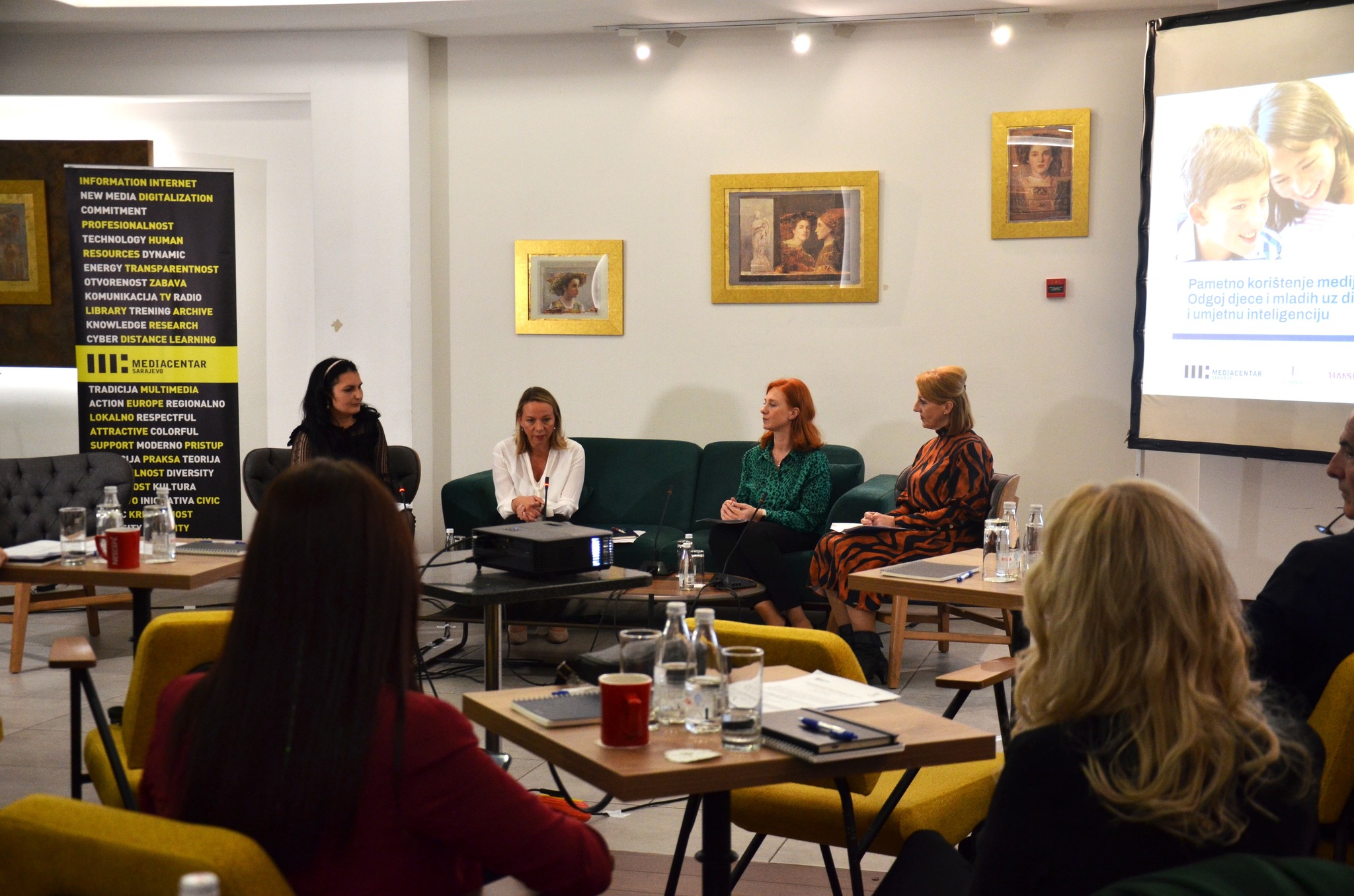
The international conference “Smart use of media: Raising children and young people with
digital media and artificial intelligence” was held in Sarajevo on 27 October 2023.
Researchers and practitioners in the field of media pedagogy and media culture from Bosnia
and Herzegovina and the Czech Republic, as well as other countries of the European Union and
the Western Balkans, gathered in the Bosnian capital to discuss the use of digital media, social
networks and artificial intelligence in bringing up and educating children and young people, and
in guiding young people in the responsible and ethical use of these technologies.
The conference was held during the Days of Media and Information Literacy initiative in Bosnia
and Herzegovina and formed part of the project “Smart use of media: building resistance to
misinformation through targeted training for journalists, teachers and the general public,”
authored by Transitions in partnership with Mediacentar Sarajevo, with the financial support of
the Transition Promotion Program of the Government of the Czech Republic.
“This event was designed with an aim to bring experts from various disciplines together to
examine the best solutions for an effective and meaningful relationship with technological
developments and with the fact that technology is an integral part of parenting, education and
the overall upbringing of children,” said Selma Zulić Šiljak, a coordinator at Mediacentar
Sarajevo.
The conference was an opportunity to discuss the issues and challenges that young people face
in the media space, said the consul and head of the Department for Development Cooperation
at the Embassy of the Czech Republic in BiH, Štěpán Šantrůček.
“Strong and independent media is one of the pillars of democracy, as is the ability of the
population to think critically about media content. Therefore, I am very happy that we can
contribute to media education and literacy within this project,” said Šantrůček.
He added that the Czech Republic is a strong supporter of transition and democratic processes
in partner countries such as Bosnia and Herzegovina, where the country’s representatives can,
as he emphasized, share their experiences in building democratic institutions.
The use of artificial intelligence in schools, the impact of digital technologies on the mental
health of children and young people, and the support system for parents in creating media
habits for children, were some of the topics discussed during the conference. A second focus of
the day’s activities was developing strategies to stem the harmful influence of information and
communication technologies.
“Children and young people are just as concerned about the impact of social media on their
mental health as adults. Everyone needs education and empowerment, including the children
themselves, but also teachers and parents, so that they can support them in the balanced use
of digital media,” said Ana Dokler, editor-in-chief of the medijskapismenost.hr portal.
Dr. Dragana Trninić, a communication researcher from the Faculty of Political Sciences of the
University of Banja Luka, said that parental control of children on the internet does not only
mean banning and restricting access, but should be proactive and enable children to use the
internet responsibly for various purposes.
Media education must also find its place within the existing school curriculum. Crucially, said Dr.
Vesima Čičkušić, an expert in the field of media literacy and media education, such education
should start early, from preschool age and from the first encounters with the world of media.
“Generally, even in the most developed educational systems, it is difficult for curriculum changes
to follow dynamic changes in the digital information and communication environment. Ensuring
that teaching is linked with life in general and changes in the environment is a demanding and
difficult task, which requires constant and large investments,” Čičkušić said.
For this reason, as she stated, the search for a more effective educational response should also
boost the readiness of teachers to take more innovative approaches in the classroom.
Tomáš Titěra, a researcher and educator in the field of media and information literacy at
Transitions, also spoke about the development of technology and artificial intelligence, which
has the potential to transform education.
“If artificial intelligence is used meaningfully, it can make learning more effective and support
critical thinking in children and young people,” he said.
The conference participants agreed that continuing education and research in the field of new
technologies is necessary, and that upbringing and education must follow the technological
development of the digital environment. See the event photos here.
